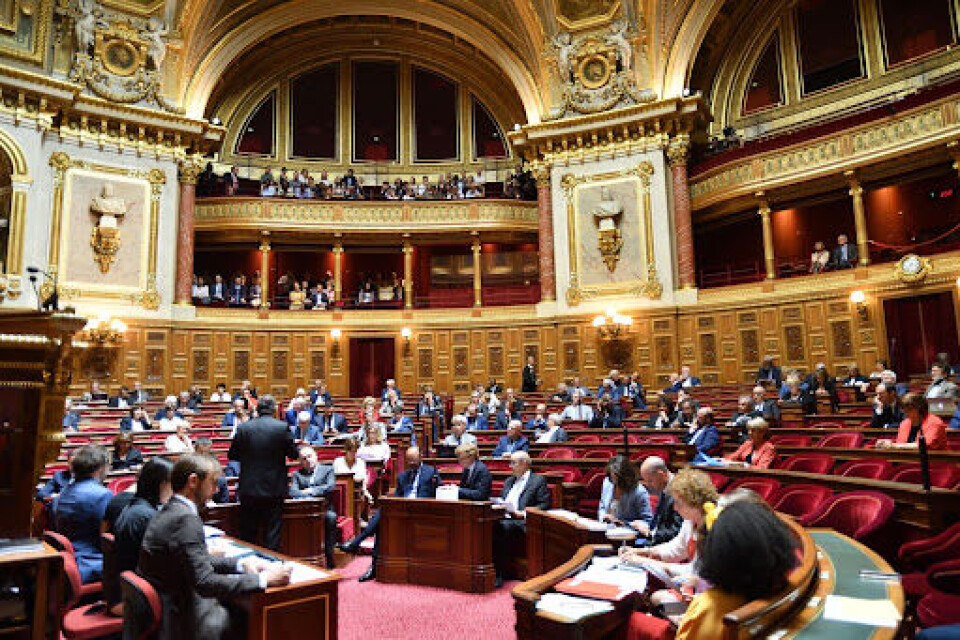-
Mysterious boom rattles residents in south-west France
Local community turns to social media for answers
-
France tightens reimbursement rules for flight delays or cancellations
New measures include mandatory mediation and new claim procedures
-
What snow conditions look like for skiers across French Alps and Pyrenees
Ski resorts are expected to get busier as school holidays begin this weekend
Why this Sunday’s French senator elections carry big political stakes
The election will renew half the members of the Senate and will have a significant effect on the remainder of President Macron’s second term

Hundreds of French senators are entering their last few hours of campaigning before this Sunday’s sénatoriales - senate election, which will see nearly half the seats there renewed.
In total, 170 senators across all parties are to be nominated and the election carries high stakes for the balance of France’s legislative powers.
It means that senators, who are typically overlooked working quietly ‘in the shadows’, will have to get used to being in the spotlight during the remainder of President Macron’s second term.
Read more: French senators: their role and how next weekend’s elections will work
Read more: Macron: limiting president to two consecutive mandates is ‘stupidity’
This is because the 2022 MP elections failed to give a clear majority to the newly elected president despite rule changes to favour this.
In 2000 former President Jacques Chirac reduced the presidential term from seven to five years to align both the presidential and legislative (MP) elections in the months of May and June.
The aim was to avoid cohabitation, a form of governance where a president runs the country but with a prime minister from an opposite party, a situation which defined French politics from the 70s to the late 90s.
The Chirac change resulted in successive presidential parties winning a clear majority with MPs at the Assemblée Nationale as voters typically align with the party of the president elected a month before.
But in 2022, no majority emerged, with the public instead electing MPs from three equally-sized political groups from across the spectrum.
Now, the sénatoriales’ results could help opposition parties gain more political power and leverage against the government.
The Connexion spoke to two political experts to explain the importance of the sénatoriales for France’s main parties.
Far-right, right and centre-right coalition
The right-wing Les Républicains (LR) are expected to be the major winner of the sénatoriales and to increase or at least retain most of their 65 seats which are up for renewal, said political expert Jean Petaux and Le Monde.
Mr Petaux highlighted the benefits of retaining a majority in the event of a proposed revision of the Constitution, a possibility that has been alluded with more intensity in the last year by President Macron as well as by party grassroots members.
Any revision would need the approval of both the Assemblée Nationale and the Senate, and LR could potentially play a gridlock role, he added.
“Both Les Républicains at the Assemblée Nationale and the Senate will act as a major constraint for Mr Macron, so they will have to find common ground,” said Bruno Cautrès, a political expert and member of Sciences Po’s political research centre CEVIPOF.
Renaissance, the government’s party, is set to approach the sénatoriales with a view to having a greater presence in smaller areas as the party is often accused of only having a presence in large cities.
“Renaissance needs to prove that it will not disappear once Mr Macron goes,” said Mr Cautrès. “It is clear that [expanding to smaller towns] is not what the president would have chosen,” he added.
The stakes for Horizons, the party led by former Prime Minister Edouard Philippe, are much higher and important, said Mr Cautrès. He highlighted the need for Mr Philippe’s party to consolidate his image and transform the support he has from local mayors into a larger Senate presence.
Mr Philippe is regularly suggested as a credible candidate for France’s next presidential election in 2027.
The far-right party the Rassemblement National is expected to win its first handful of senators, which will help in bolstering its presence and legitimacy, both experts said.
“Getting senators will give credibility to the party’s leader Marine Le Pen in the institutional game,” said Mr Cautrès.
“It will also make the party stronger and enhance its mobilisation strategy,” said Mr Petaux.
Ms Le Pen expects to gain five to ten senators according to Le Point.
NUPES (left-wing coalition)
The coalition of four left-wing parties, Nupes, is divided on the sénatoriales as some parties within it refuse to share lists with the far-left La France Insoumise.
The Socialist Party - the second strongest force - is reluctant to make alliances with the far-left La France Insoumise, which arguably already weakens the group.
The party has 33 senators on the line, with 11 forecast to be potentially lost. The Green party, which has 12 seats, has four of these up for renewal. The Communist party has 15 seats, with 11 of them up for renewal.
Socialist senator Patrick Kanner has forecast that after the elections, there will be 100 left-leaning senators (as opposed to 91 currently), a figure that does not seem out of reach for Mr Petaux.
Despite small numbers (4.5% in 2017 and 1.74% in 2022) in the last two presidential elections, the Parti Socialiste (PS) will retain a solid territorial footprint in smaller-sized French towns, added Mr Petaux. “The PS will not collapse,” he said.
In contrast he predicted that La France Insoumise, the far-left party run by Jean-Luc Mélenchon, will score poorly due to Mr Mélenchon’s disregard for local elections.
“When you treat the Senate like a secondary chamber of petty importance, reality eventually hits political intentions,” he said.
Read also
'Preferendum': a buzz word, not a real concept, says French law expert
Does Macron's use of the word sécession have US Civil War overtones?
























